MercoPress. South Atlantic News Agency
Tag: Brazil
-
Sunday, April 22nd 2012 - 23:17 UTC
Record approval for Dilma, but Brazilian voters’ heart is with Lula da Silva
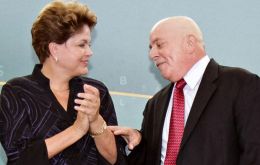
Brazilian President Dilma Rousseff's administration reached a record-high approval rating in April but voters still long for the return of predecessor Lula da Silva, a newspaper reported.
-
Saturday, April 21st 2012 - 07:07 UTC
Emerging powers committed to IMF but insist on less European predominance
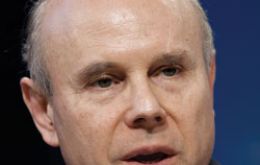
Major emerging powers stood ready on Friday to pledge money to bolster the International Monetary Fund's crisis-fighting war chest, though Brazil was holding out for promises that their voting power at the global lender would increase.
-
Saturday, April 21st 2012 - 06:57 UTC
Uruguay and Brazil agree to jointly develop and expand wind power
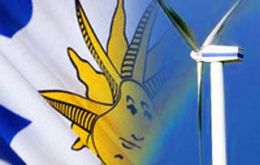
Uruguay and Brazil agreed this week to jointly set up a 100MW wind farm in Uruguayan territory demanding an investment of 200 million dollars and which should become operational by 2013.
-
Saturday, April 21st 2012 - 06:44 UTC
Petrobras promises to expand and increase investments in Argentina
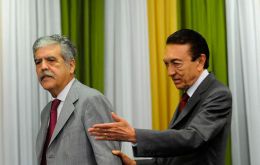
Brazil’s President Dilma Rousseff following a meeting with an Argentine delegation from the energy sector ratified her country’s decision to “strengthen the investment and the presence of the oil company, Petrobras, in Argentina”.
-
Saturday, April 21st 2012 - 03:51 UTC
Brazil will continue to intervene in support of industry and depressing its currency
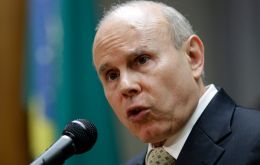
Brazilian Finance minister Guido Mantega said on Friday that IMF Managing Director Christine Lagarde makes a mistake in recommending emerging countries not to intervene in the money exchange markets to counter the strong devaluation of currencies from the rich countries.
-
Friday, April 20th 2012 - 04:36 UTC
Brazil’s two largest companies team up to work together in several projects
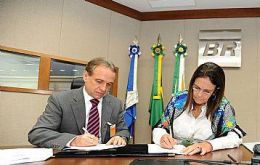
Petrobras and mining company Vale, the two biggest companies in Brazil, have signed a memorandum of understanding to pursue joint ventures in various areas, Petrobras said.
-
Thursday, April 19th 2012 - 23:26 UTC
Brazilian polar vessel vistis Montevideo at the end of her Antarctic tour

The Brazilian navy polar research vessel “Almirante Maximiano” at the end of its XXXth Antarctic operation, Operantar, arrived on Thursday at Montevideo to take fuel, supplies and exchange experiences with Uruguayan officers.
-
Thursday, April 19th 2012 - 04:59 UTC
Brazil lowers basic rate to 9%, sixth straight reduction and more could come

Brazil lowered its benchmark interest rate to a near-historic low of 9% on Wednesday, as expected, but the central bank surprised with hints that more cuts may follow to revive Latin America's largest economy.
-
Wednesday, April 18th 2012 - 22:34 UTC
Brazil feels YPF dispute will not interfere with Petrobras operations in Argentina
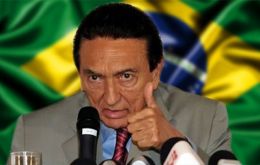
Brazil’s Mines and Energy minister Edison Lobao discarded that operations of Petrobras in Argentina could be affected by the decision from the administration of President Cristina Fernandez to expropriate YPF from Spain’s Repsol.
-
Wednesday, April 18th 2012 - 08:23 UTC
Brazilian economy set to grow 3%, but with risks of overheating, says IMF

The Brazilian economy is set to grow 3% in 2012 after the modest 2.7% of last year, but following the relaxation of monetary policy it runs the risk of ‘overheating’, according to the IMF World Economic Outlook, WEO.
